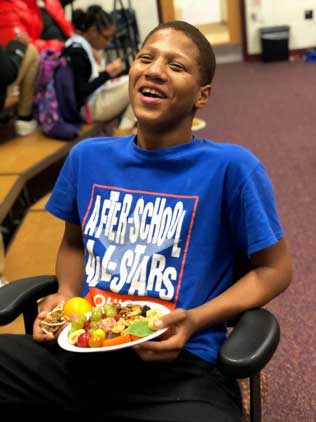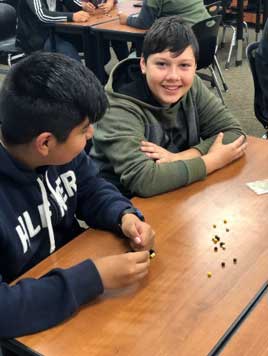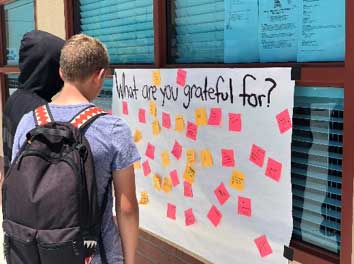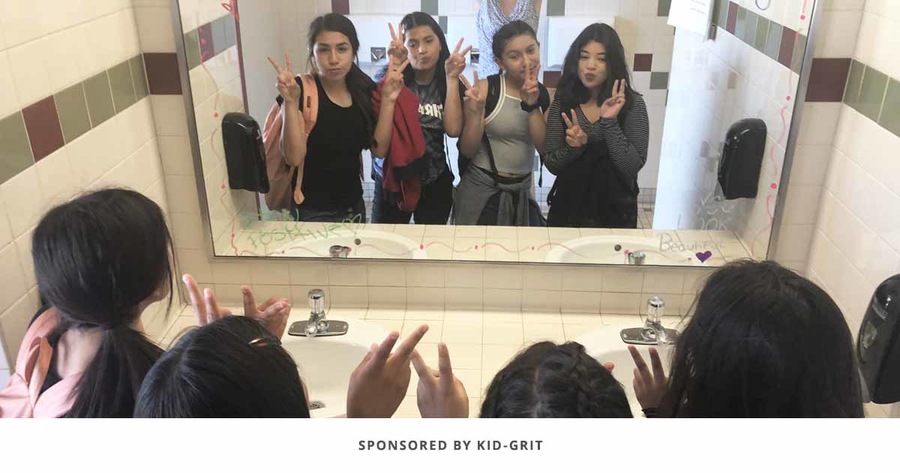There's an undercurrent of pain, loss and deep grief for hundreds of thousands of us across the country and worldwide. It's a "leftover" from 2020 and it's still going strong. Alas, there is light ahead, with the arrival of a vaccine and plans for reopening schools, summer programs and afterschool programs in full effect. What does this look like for you?
The Afterschool Alliance reports that pre-COVID-19, afterschool programs served up to 7.7 million students across the U.S. In 2020, over 24 million youth would have attended an afterschool program, if the programs were available. Clearly, programs were closed due to the pandemic crisis. This is a complex issue.
Currently, youth are not only not in a physical school building, but some never even showed up for web-based classes due to lack of access or devices, in addition to a long list of other possible obstacles. We simply don't know what has happened in the homes of most of the youth we serve. All of these challenges can cause deep trauma. We know that hundreds of thousands of kids are suffering. We simply don't know the degree of how much suffering has occurred. Further, the majority of the students we serve in afterschool already come from under-resourced communities. This begins to look like trauma on top of trauma. We don't know who they'll be when our schools and programs open again.
You likely already know all of this and know that what we do in afterschool is extraordinary. We offer young people enrichment activities, food, academic support, sports and wellness education, STEM programming, college and career access, and access to exploring their passion. We become their mentors, teachers, siblings, parents and friends. If the school day were run like an afterschool program, learning would be exciting, young people would come to school, behavioral issues would be down, and youth would see themselves for the vibrant, creative contributors they are and will become.
 Photo courtesy of kid-grit. Cleveland After School All Stars, 2018
Photo courtesy of kid-grit. Cleveland After School All Stars, 2018
We're faced with a new problem to solve: Big trauma. We cannot expect youth to sit in classrooms for seven hours a day after not being in school for over a year, or expect them to concentrate in-person after a year of remote learning or barely any learning at all. There will be learning loss; you can count on it. We cannot expect kids to socialize normally, as they haven't seen their peers in over a year. Layering in the potential trauma they've experienced is an enormous task for teachers, administrators, and frontline staffers in out-of-school time. We have to prepare ourselves. But there is hope!
SEL, mind-health and mental health needs will need to be addressed with every child. For youth to learn well, we must fight for wraparound services in order to get them ready for school and learning. We must fight for trauma informed and SEL training/support for our frontline staff. It needs to be continuous, not just a "one and done" event. We must recreate our programs and add in dedicated time for mind-health, SEL, and physical activity to ensure we're taking care of youth in all ways they need. We need to manage and support the whole child.
 Photo courtesy of kid-grit. Palm Springs USD, 2019
Photo courtesy of kid-grit. Palm Springs USD, 2019
Research shows that SEL provides major benefits in schools and afterschool programs. A meta-analysis of 213 studies found it not only increased test scores by 11 percentile points, but also reduced aggression and emotional distress among students, increased helping behaviors in school, and improved positive attitudes toward self and others.
 Photo courtesy of kid-grit. Creekside JHS, 2019
Photo courtesy of kid-grit. Creekside JHS, 2019
A few helpful tips:
- Research and identify grants focused on SEL and youth development. ASES, 21st Century Grant, MOTT Foundation, Wallace Foundation, state-wide grants, local business and banks are great resources.
- Check your budgets. Create a line item for SEL, PBIS and trauma-informed practices. Host a community fundraiser if you have to.
- Set aside extra time to train your staff in these practices.
- Support your staff and provide designated time for staff wellness. They'll need it and they'll remember your leadership forever.
- Remember why you got into this world of loving youth. It's the best way to make a change.
If you're #ReadyforSeptember, share your tips for how you'll open your summer and fall programs on social media by using the hashtag #ReadyforSeptember.
Julia Gabor MA Ed., is the Mindful Founder of kid-grit, an innovative, soul-driven professional development company with a robust SEL curriculum to match.
Courtesy of kid-grit.

